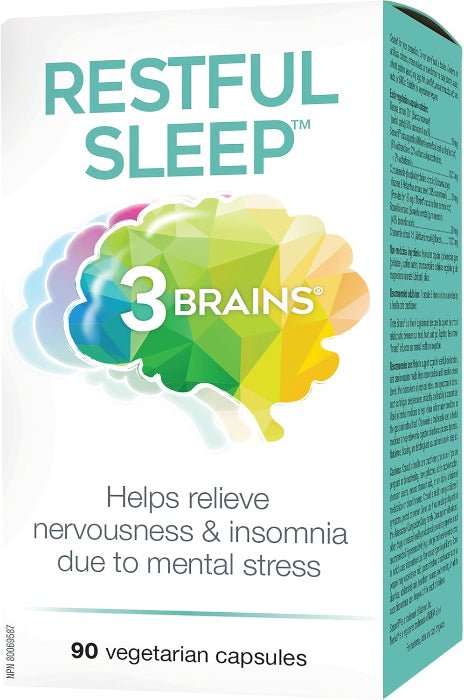Depression, a silent but formidable foe, can affect anyone, regardless of age. However, geriatric depression often remains overlooked or underestimated, creating a significant gap in mental health awareness and support for seniors.
As our loved ones age, ensuring their mental well-being becomes paramount. Geriatric depression, a distinct form of the condition affecting seniors, poses unique challenges that demand attention. There is a relatively similar prevalence of geriatric depression between developed countries (5.5%) and developing countries (5.9%). But the projecting data tend to increase in the developing countries and decrease in the developed countries.
Symptoms of Geriatric Depression
Symptoms and signs of depression from DSM5 diagnostic criteria include depressed mood most of the day, loss of interest in all or most of the activities nearly every day, significant weight loss, slowing down of thought and a reduction of physical movement, fatigue, feeling of worthlessness or excessive or inappropriate guilt, diminished ability to think or concentrate, or indecisiveness, and recurrent thoughts of death.
Emotional Signs
Seniors grappling with depression may exhibit persistent feelings of sadness, hopelessness, or emptiness. These emotional cues often become subtle yet crucial indicators of underlying mental health struggles.
One must differentiate depression from sadness. Sadness from the loss of a loved one could lead to depression, especially for older adults. The essential difference is sadness required triggers, while depression is not. Depressed people may cry without reason. Depressed people tend to have thoughts of self-harm and suicidal inclinations, while sadness is just an expression of emotion that could be recovered after several days. Thereby, major depressive disorder is associated with high mortality at all ages.Cognitive Signs
Depression can manifest in cognitive domains, leading to issues such as memory loss, difficulty concentrating, and indecisiveness. Recognizing these signs is crucial for early intervention.
Physical Signs
Physical symptoms, such as changes in appetite, sleep disturbances, and unexplained aches or pains, can be manifestations of geriatric depression. These signs, though subtle, paint a comprehensive picture of an individual's mental health.
Factors Contributing to Geriatric Depression
Understanding the factors that contribute to geriatric depression is essential for effective intervention and support.
Health Conditions
Chronic health issues, common in the elderly, can contribute significantly to depression. Addressing the intersectionality of physical and mental health is vital for comprehensive care.
Social Isolation
Seniors may experience social isolation due to factors like retirement, loss of friends or family, or physical limitations. Combatting loneliness is a key element in preventing and managing geriatric depression.
Medications
Certain medications may have side effects impacting mental health. A thorough review and adjustment of medications can be instrumental in alleviating depressive symptoms.
Challenges in Identifying Geriatric Depression
In the US, there are as many as 10% of elderly diagnosed clinically significant depression in a primary care setting. But only one in five depressed older adults receives proper treatment.
Overlapping Symptoms with Aging
Distinguishing depressive symptoms from the natural aging process can be challenging. Awareness and education are crucial in preventing misdiagnosis.Stigma Associated with Mental Health
Stigma surrounding mental health issues often prevents seniors from seeking help. Normalizing conversations around mental health is imperative to break down these barriers.
Impact on Physical Health
Links to Chronic Conditions
Geriatric depression has been linked to the exacerbation of chronic health conditions. Addressing mental health is not only essential for emotional well-being but also for overall physical health.
Immune System Effects
Depression can compromise the immune system, making seniors more susceptible to illnesses. Recognizing and treating depression can contribute to a robust immune response in older adults.
The Role of Caregivers
Recognizing Signs
Caregivers play a pivotal role in recognizing the signs of geriatric depression. Close observation and communication are essential in providing timely support.
Providing Support
Emotional support, encouragement, and active involvement in the lives of seniors can significantly contribute to their mental well-being. Caregivers act as a crucial support system in the battle against depression.
Effective Treatment Approaches
Therapy Options
Therapeutic interventions, such as cognitive-behavioral therapy (CBT) and interpersonal therapy, have shown efficacy in treating geriatric depression. Tailoring treatments to individual needs is essential for success.
Medication Considerations
In some cases, medication may be prescribed to manage depressive symptoms. However, a cautious approach, considering potential interactions and side effects, is crucial, especially in the elderly population.
Preventive Measures
Lifestyle Changes
Encouraging seniors to adopt a healthy lifestyle, including regular exercise, balanced nutrition, and sufficient sleep, can serve as a preventive measure against geriatric depression.
Social Engagement
Fostering social connections and engagement within the community acts as a protective factor. Community involvement provides a sense of purpose and belonging, reducing the risk of depression.
Breaking the Stigma Surrounding Mental Health
Importance of Open Conversations
Openly discussing mental health challenges is pivotal in breaking the stigma. Seniors should feel comfortable expressing their emotions and seeking help without fear of judgment.
Community Initiatives
Communities can play a role in destigmatizing mental health issues through awareness campaigns, support groups, and accessible mental health resources for seniors.
Resources and Support Organizations
Helplines
Providing contact information for helplines and mental health support organizations ensures that seniors, caregivers, and concerned individuals have access to immediate assistance.
Online Communities
Digital platforms offer valuable resources, including online communities where individuals can share experiences, seek advice, and find comfort in a supportive virtual environment.
Navigating Geriatric Depression During COVID-19
Challenges Faced by Seniors
The pandemic has exacerbated challenges for seniors, making it crucial to address the specific impact of COVID-19 on geriatric depression.
Coping Strategies
Offering practical coping strategies tailored to the current circumstances helps seniors navigate the unique challenges posed by the pandemic.
Collaboration Between Healthcare Professionals and Families
Importance of Team Effort
A collaborative approach between healthcare professionals and families is essential for comprehensive geriatric care. This teamwork ensures a holistic focus on both physical and mental health.
Holistic Approach to Care
Considering the interconnectedness of physical and mental health, a holistic approach that addresses both aspects is vital
-------------------------------------------------------------------------------------
Reference
1. Mijung Park, Jürgen Unützer, Geriatric Depression in Primary Care. Psychiatr Clin North Am. 2011 Jun; 34(2): 469–x. doi: 10.1016/j.psc.2011.02.009
2. Kessler RC, Birnbaum H, Bromet E, Hwang I, Sampson N, Shahly V. Age differences in major depression: results from the National Comorbidity Survey Replication (NCS-R) Psychological Medicine. 2010;40(02):225–237.
3. Harman JS, Veazie PJ, Lyness JM. Primary Care Physician Office Visits for Depression by Older Americans. Journal of General Internal Medicine. 2006;21(9):926–930.
4. Lyness JM, Kim J, Tang W, et al. The Clinical Significance of Subsyndromal Depression in Older Primary Care Patients. American Journal of Geriatric Psych. 2007;15(3):214-223. 210.1097/1001.JGP.0000235763.0000250230.0000235783.
5. World Health Organization. (2017). Mental health of older adults. https://www.who.int/news-room/fact-sheets/detail/mental-health-of-older-adults
6. American Psychiatric Association. (2013). Diagnostic and statistical manual of mental disorders (5th ed.). Arlington, VA: American Psychiatric Publishing.
7. Reynolds III, C. F., & Kupfer, D. J. (1999). Depression and aging: A look to the future. Psychiatric Services, 50(9), 1167-1172.
8. Geriatric Mental Health Foundation. (2022). https://www.agmh.org/










